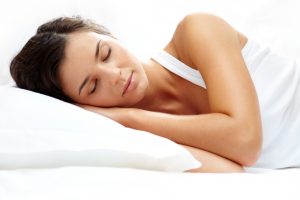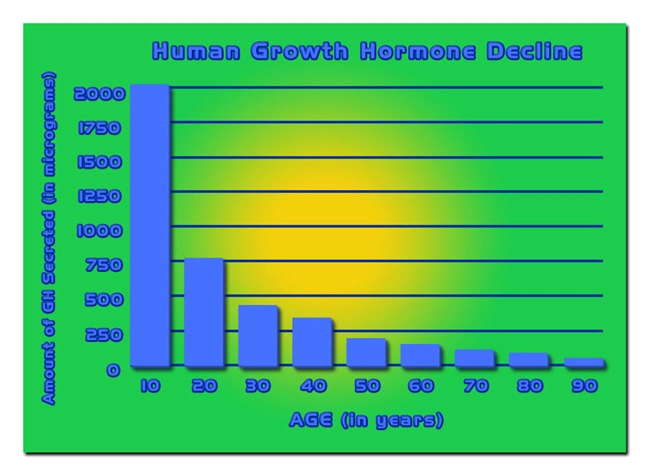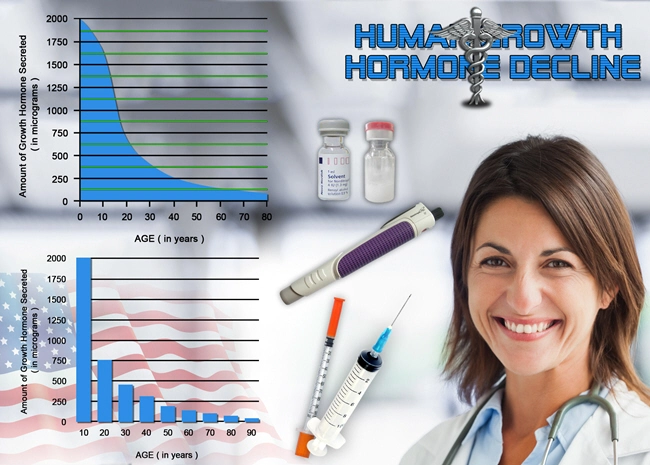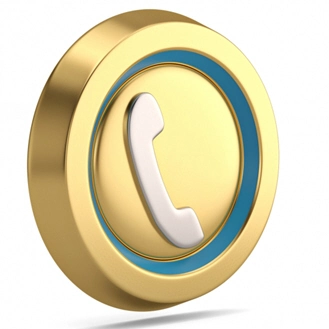
Video Link: https://vimeo.com/285984832
Video Download: Click Here To Download Video
Video Stream: Click Here To Stream Video
Video Link: https://vimeo.com/285985130
Video Download: Click Here To Download Video
Video Stream: Click Here To Stream Video
You called our HGH clinic and told us about your symptoms that are commonly associated with a growth hormone deficiency, and we sent you locally to get  blood work done in your city and state. The results showed your IGF-1 levels were low; we prescribed you Sermorelin or HGH injections.
blood work done in your city and state. The results showed your IGF-1 levels were low; we prescribed you Sermorelin or HGH injections.
You started to feel great, but now you want to know what the most critical factor is for losing weight? Recently, the question has been, "What is more effective for losing weight: exercise or healthy eating?"
The one-sentence answer is that there are other factors you need to think about, and we will discuss them in detail.
Eating Healthy is Not Enough While Using Growth Hormone Injections
We have slashed our food intake and spent a small fortune on personal trainers and gyms (that most haven't used past January). The result of these efforts?
We have not last weight. Worse, we have actually gained weight! What went wrong? We thought that eating healthy foods was the most critical factor, when in fact, exercising on a daily basis is just as equally important, if not more important than eating healthy.
Apparently eating healthy is a no-brainer, but many people think this is all they have to do when they are using HGH. Make exercise a daily part of your life when you are using growth hormone shots and go out of your way to keep that commitment.
Sleep Deprivation: Symptom of Growth Hormone Deficiency
Before going on Growth Hormone therapy, we all noticed that increasingly we were sleep-deprived, because our jobs, life, and responsibilities were demanding more and more from us. As we age, we find our sleeping patterns go awry. Our patients who undergo Sermorelin injections on an evening basis reported back that they slept like babies.
We raised your IGF-1 levels to 250 ng/dL, and you found you were waking up feeling refreshed. Now, the first thing you need to do to start losing weight is get more sleep -- at least 8 hours.
The National Sleep Foundation advises adults ages 18 to 64 to get between seven and nine hours of sleep a night. However, we are falling short of that goal. 30 per cent of American adults sleep fewer than 6 hours, as per research conducted by the U.S. Centers for Disease Control and Prevention.
And that's not the only problem. People who clock less than five to six hours a night are up to 45 per cent more probable to be obese, according to Alexandra Sowa, an instructor of medicine at Weill Cornell Medical College in New York City.
per cent more probable to be obese, according to Alexandra Sowa, an instructor of medicine at Weill Cornell Medical College in New York City.
"More than one-third of Americans are overweight, and a similar number is sleep-deprived. Both can be considered to be significant health problems, approaching epidemic proportions."
Perhaps that answers the question. Perhaps it's sleep that's the most essential piece of the weight loss puzzle. But ultimately getting enough hours of sleep is just one factor in the equation.
Start your weight loss program by getting 8 hours of sleep. If you are using Sermorelin injections, studies have indicated that a peak release of HGH occurs between the 7th and 8th hours of sleep.
This does not mean that all three of these healthy practices aren't critical to helping you hit your ideal weight, and slashing your risk of type 2 diabetes and heart disease. However, sleep seems to be in a class of its own in its capacity to outweigh (pun intended) the other two.
What it Comes Down to is This
You can probably get adequate sleep even if you're shoveling down barely edible swill, and remaining stuck on your recliner or couch. However, you can't expect to work out with mega-intensity or eat clean if you're skimping on zzzs.
Why? Two reasons. First, poor sleep = fatigue. Second, lack of sleep disrupts the energy balance and operation in every system of your body, says neurologist Phyllis C. Zee, director of the sleep disorders center at Northwestern University Feinberg School of Medicine in Chicago.
Sleep deprivation wreaks havoc on the body's hunger-regulating hormones. This dramatically increases the odds of binging on junk food, and not an issue of willpower, says registered dietitian Kelly Pritchett, assistant professor of nutrition and exercise science at Central Washington University.
Precisely, it may lower your body's levels of leptin, "the satiety hormone," and ramp up ghrelin, "the hunger hormone."  That's one reason why, in a study when men and women slept 80 minutes less from their usual sleep schedule, they devoured an extra 549 calories the next day.
That's one reason why, in a study when men and women slept 80 minutes less from their usual sleep schedule, they devoured an extra 549 calories the next day.
Worse, those calories aren't coming from healthy choices like fresh fruits and vegetables.
Prior studies from the University of California-Berkeley used brain scans to discover that sleep deprivation inhibits activity in the brain's frontal lobe, which regulates complex decision-making, and regrettably speeds up activity in the brain's reward center, the one that comes alive in response to sugar, salt, and fat.
"When you are sleep deprived, your brain is more likely to want high-energy foods for fuel," Dr. Zee adds. "It shouldn't be a big surprise. When you are up at 2 or 3 in the morning, you aren't thinking about salads." And even if you do somehow manage to stick to your healthy-eating habits while running on too little sleep, your weight-loss progress will still suffer.
In one University of Chicago-led study, when participants averaged 8.5 hours of sleep nightly over the span of two weeks, half of the weight they lost fat. However, when their amount of sleep plummeted to 5.5 hours of sleep a night, their rate of fat loss cratered by 55 percent...in spite of the fact that they ate the exact same foods!
It appears to come down to hormones. The research concluded in the journal Diabetologia determined that only four days of sleep deprivation lowered the body's insulin sensitivity, which heightened the risk for fat storage.
The study also concluded that lack of sleep slashed the body's levels of growth hormone, a hormone that is crucial to not only fat-burning but also your capacity to recuperate from exercise. Meanwhile, Dr. Zee's research, published in the Journal of Clinical Sleep Medicine, concluded that sufficient sleep may affect your ability to work out more than working out affects your sleep quality.
Think about that long and hard. "Sleep is completely underrated. People believe that they can do with a little bit less, and many even believe that it's okay to get by on a few hours of sleep," Dr. Zee says. "They feel tired, but they think that's the worst of it. In reality, the consequences of poor sleep are much greater."
Make the most of your growth hormone injections protocol, sleep for 8 hours, spread out your eating to 6 small meals per day, and exercise every single day, even if it's only for 20 hard minutes.
Washing dishes doesn't count as exercise! Go for an intense power walk, lift weights, ride your bike, do situps, pushups, yoga, do whatever you can even if you are trapped in your home during the winter months!
Contact us for a FREE, no-obligation discussion concerning the benefits of growth hormone restoration.
Contact Us Today For A Free Consultation
Dear Patient,
Once you have completing the above contact form, for security purposes and confirmation, please confirm your information by calling us.
Please call now: 1-800-380-5339.
Welcoming You To Our Clinic, Professor Tom Henderson.

- Obese Patients Have a Higher COVID-19 Mortality Risk Than the General Public [Last Updated On: January 24th, 2025] [Originally Added On: August 21st, 2020]
- The Health and Hormone Balancing Qualities of Broccoli [Last Updated On: July 10th, 2024] [Originally Added On: August 27th, 2020]
- What to eat to boost testosterone [Last Updated On: August 13th, 2024] [Originally Added On: December 14th, 2020]
- Breaking a Weight Loss Plateau: How to Reduce Body Fat When Nothing Seems to be Working [Last Updated On: January 20th, 2025] [Originally Added On: February 16th, 2021]
- The Top 25 Most Nourishing and Sustaining Foods to Add to Your Diet Today for Increased Longevity [Last Updated On: January 16th, 2025] [Originally Added On: February 16th, 2021]
- Fight Inflammation and Osteoporosis with Beets! [Last Updated On: January 14th, 2025] [Originally Added On: February 18th, 2021]
- Break a Weight Loss Plateau with Apple Cider Vinegar [Last Updated On: January 14th, 2025] [Originally Added On: February 20th, 2021]
- An Intriguing Look into How Growth Hormone Production and Fasting are Linked [Last Updated On: January 18th, 2025] [Originally Added On: February 21st, 2021]
- Health Reasons for a Vegan Diet [Last Updated On: September 24th, 2024] [Originally Added On: April 2nd, 2021]
- Leafy Greens are Medicine for Your Gut [Last Updated On: August 27th, 2024] [Originally Added On: April 23rd, 2021]
- All Praise to the Spud -- the Delicious, Health-Giving Potato, That Is [Last Updated On: July 11th, 2024] [Originally Added On: June 1st, 2021]
- 16 Cancer-Causing Foods to Avoid [Last Updated On: June 12th, 2024] [Originally Added On: August 12th, 2021]
- Longevity and Anti-Aging -- The Use of Flax Seed Oil [Last Updated On: May 30th, 2024] [Originally Added On: August 17th, 2021]
- Essential Amino Acids Critical to Health and Hormone Balance [Last Updated On: July 5th, 2024] [Originally Added On: October 6th, 2021]
- Growth Hormone and Calcium [Last Updated On: January 11th, 2025] [Originally Added On: October 16th, 2021]
- Growth Hormone and Coffee [Last Updated On: January 9th, 2025] [Originally Added On: October 19th, 2021]
- The Importance of Protein in Weight Loss and Testosterone Production [Last Updated On: January 19th, 2025] [Originally Added On: October 19th, 2021]
- Testosterone, Growth Hormone, and Sugar. [Last Updated On: January 9th, 2025] [Originally Added On: October 19th, 2021]
- Testosterone, Growth Hormone, and Processed Meat [Last Updated On: January 8th, 2025] [Originally Added On: October 19th, 2021]
- Growth Hormone and Intermittent Fasting [Last Updated On: January 7th, 2025] [Originally Added On: October 19th, 2021]
- Growth Hormone and the Importance of Nutrition [Last Updated On: January 7th, 2025] [Originally Added On: October 20th, 2021]
- Growth Hormone Stops Inflammation! [Last Updated On: January 8th, 2025] [Originally Added On: October 20th, 2021]
- Growth Hormone and Sugar Addiction [Last Updated On: January 4th, 2025] [Originally Added On: October 20th, 2021]
- Growth Hormone and Red Meat [Last Updated On: January 5th, 2025] [Originally Added On: October 20th, 2021]
- Boost Growth Hormone with Sleep [Last Updated On: June 11th, 2024] [Originally Added On: October 20th, 2021]
- A Natural Acid Found in Apples Prevents Muscle Loss AKA Sarcopenia [Last Updated On: January 10th, 2025] [Originally Added On: October 20th, 2021]
- Growth Hormone and Organic Foods. [Last Updated On: January 3rd, 2025] [Originally Added On: October 21st, 2021]
- Growth Hormone and Acidosis [Last Updated On: January 5th, 2025] [Originally Added On: October 21st, 2021]
- Growth Hormone Food Choices [Last Updated On: January 2nd, 2025] [Originally Added On: October 21st, 2021]
- Growth Hormone and Cholesterol: the Surprising Link [Last Updated On: January 6th, 2025] [Originally Added On: October 22nd, 2021]
- Growth Hormone Reduces Inflammation [Last Updated On: January 4th, 2025] [Originally Added On: October 24th, 2021]
- What You Eat Impacts Both Your Sleep AND Your Growth Hormone Production [Last Updated On: January 10th, 2025] [Originally Added On: October 24th, 2021]
- Growth Hormone Lowers Blood Sugar [Last Updated On: January 6th, 2025] [Originally Added On: October 24th, 2021]
- Testosterone and Magnesium [Last Updated On: June 13th, 2024] [Originally Added On: April 28th, 2022]
- The Beneficial Functions of Brown Fat vs. White Fat [Last Updated On: June 17th, 2024] [Originally Added On: May 3rd, 2022]
- MOTS-c Peptide for Weight Loss and Muscle Building [Last Updated On: July 3rd, 2024] [Originally Added On: November 7th, 2022]
- Looking to lose weight? Add this ingredient to meals [Last Updated On: August 24th, 2024] [Originally Added On: December 7th, 2022]
- The many health benefits of black tea [Last Updated On: August 23rd, 2024] [Originally Added On: December 13th, 2022]
- Raw Food Benefits [Last Updated On: August 20th, 2024] [Originally Added On: January 18th, 2023]
- Brain Foods that Work Together with HGH to Improve Mental Sharpness [Last Updated On: February 14th, 2025] [Originally Added On: March 9th, 2024]









